“Written Music” is a powerful tool for learning and preserving music. Think how amazing it is that you can literally play the same notes Mozart played – because he wrote them all out.
But at some point many musicians realize that notes are just the beginning of music – and many musicians start to feel like they’re stuck to the notes on the page, and bogged down spending days, weeks or months learning every single note of a piece. In fact many harpists sometimes joke that they’re too “paper trained.”
Luckily there’s a SHORT-HAND type of written music that lets you read and improvise music very quickly.
It’s called a “Lead Sheet” or sometimes a “Fake Sheet”, “Chord Chart” or “Cheat Sheet.”
Massive amounts of music … reduced onto a single page
A Lead Sheet reduces massive amounts of written music onto a single page, and if you know how to read a Lead Sheet, it’s like being able to recreate music from a blueprint, different every time but still the same tune, with sections of pure invention – yet all structured by this one page.
Here’s an Example of what I mean:
EXHIBIT A: The Lead Sheet
Below is the first 8 bars of my tune “New Blues” in a Lead Sheet Format – which could be played by a single instrument, or a whole band.
The written music tells you the melody. The “Big Letters” above them are called “Chord Symbols” – they tell you what note to put in the bass and the other notes that can fill in the harmony.
The really beautiful part is that each person can fill it in at their own level of ability.
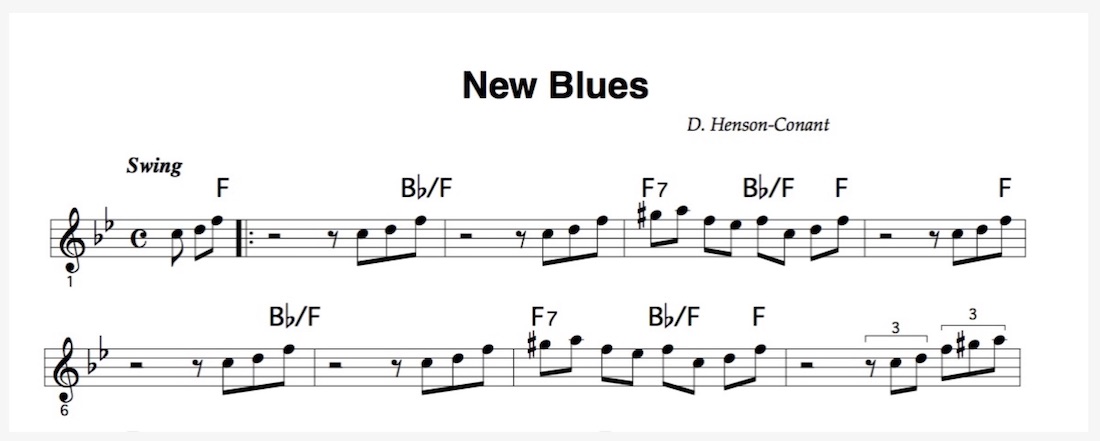
This is why it was such a powerful skill for me to learn as a child. It gave me immediate access to playing the music I love – in my own way, with the skills I had – even when those skills were rudimentary. And I kept playing from the exact same Lead Sheet for years and years. As my skills developed I just filled it out more and more as my abilities expanded.
I never had to ‘wait until I was good enough’ to start playing. Knowing how to read a Lead Sheet let me play at my current skill level, exactly as I was – right now – at every stage of my life.
Exhibit B: The Written Sheet Music
Below is the exact same music written out note for note for an orchestra. Every note you see expanded below is implied in the music above. In fact, I used the Lead Sheet above to create this version for orchestra. Once you know how to expand the Lead Sheet, you can expand it on a single instrument or on two or more instruments – and even a full orchestra like I did below.
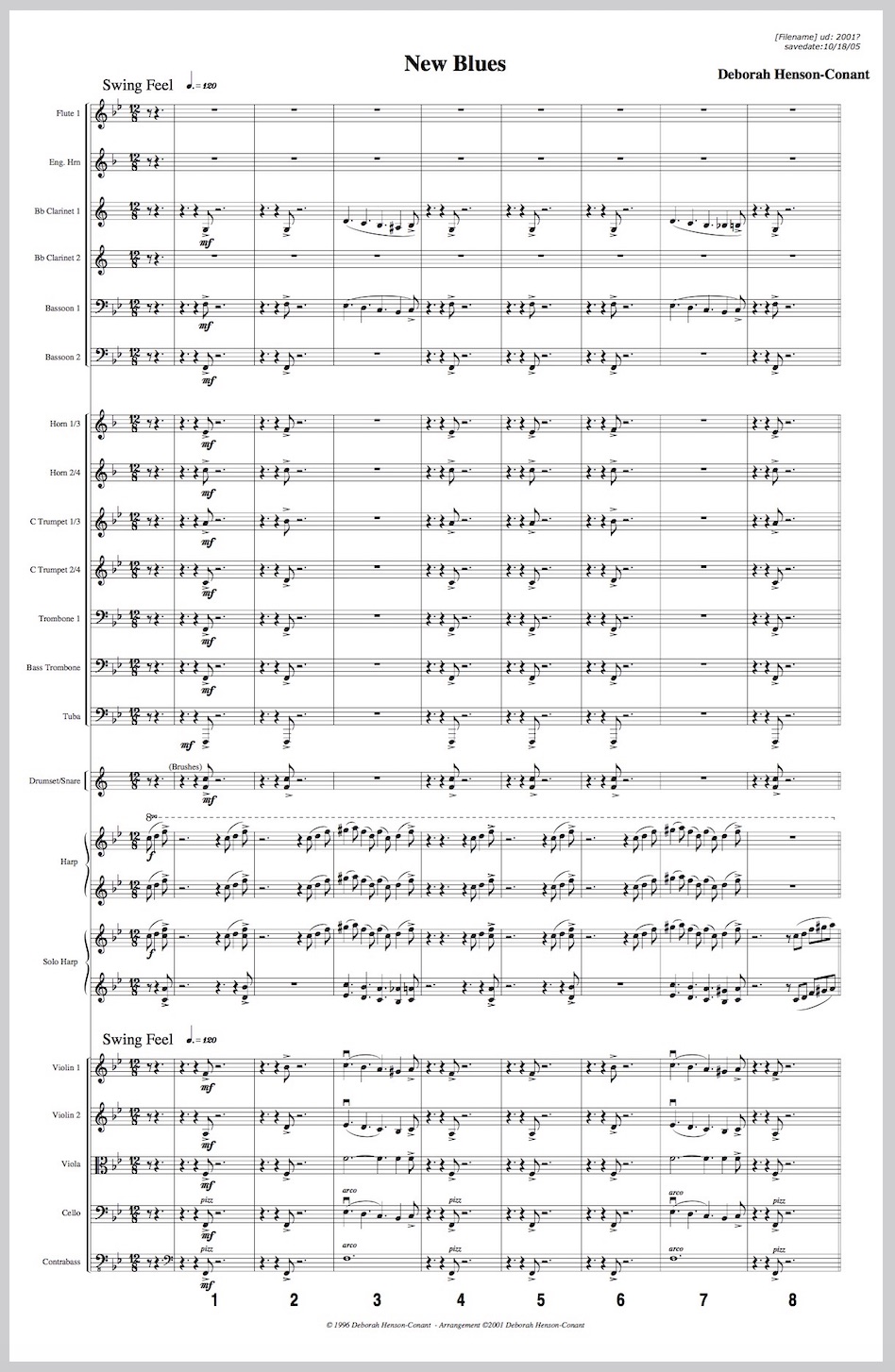
A Lead Sheet gives you the essence of a piece, the bare minimum you need to know: the basic melody, and above it, a series of symbols – called chord symbols – that you can reinvent as bass lines, accompaniment and infinite improv sections – if you know how to decipher it.
And it gets even better. Not only can you reinvent pages of music from a one-page lead sheet, but a whole band of musicians: bass player, flute, trumpet, guitar, piano, harp, vibes, flute, drums – can all read the same lead sheet and each create their own music to play together. Instant Ensemble, from a single page of music.
- You want to stop turning pages? Lead sheets.
- You want to get creative with music? Lead sheets.
- You want to play with other people? Lead sheets.
I started reading Lead Sheets when I was 10, when my mother gave me a short lesson in how they worked. Little did I know that that one short music lesson would be one of the most powerful music trainings of my life.
Now I want to train other harpists to have that same skill, that same freedom, that same access to music.
It’s one of the most powerful things I ever learned and that’s why I teach the skill of Lead Sheets in not just one but many of the classes at Hip Harp Academy.
Harpists who Dare!
Are you ready to liberate yourself from the notes on the page?
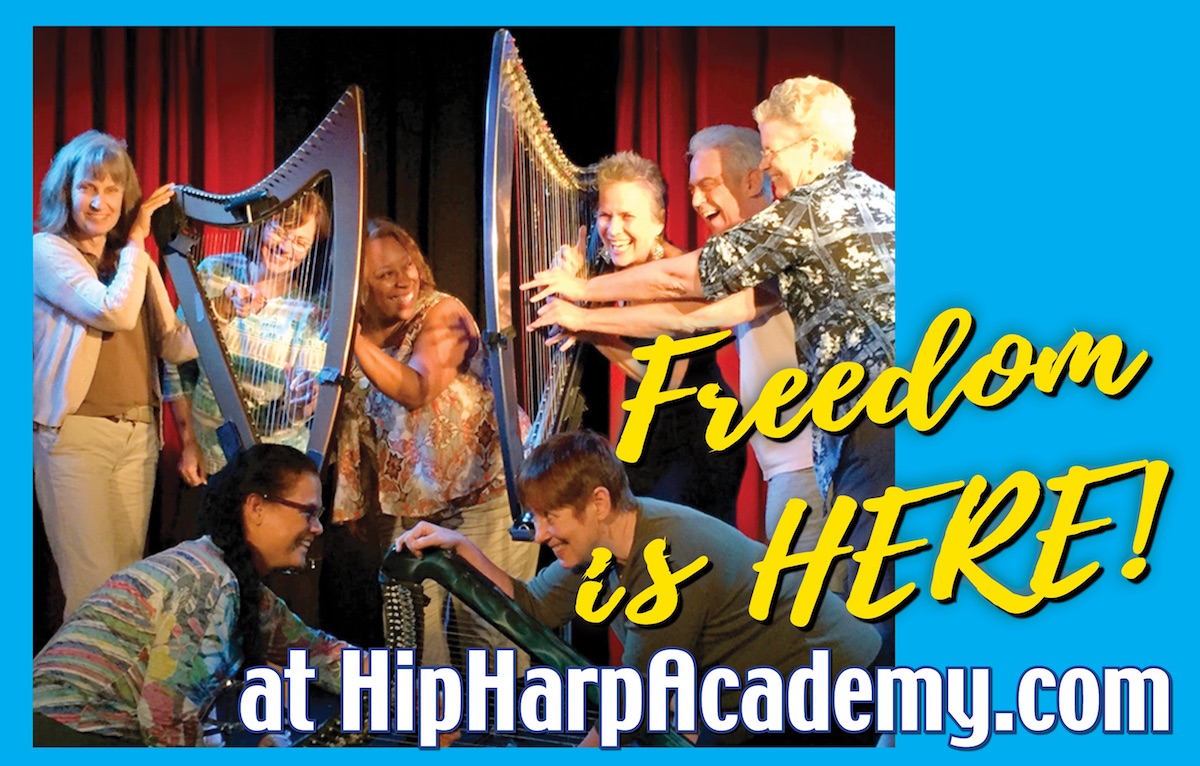
$500 OFF when you join before Midnight Oct. 23, 2023
>> REGISTER NOW <<

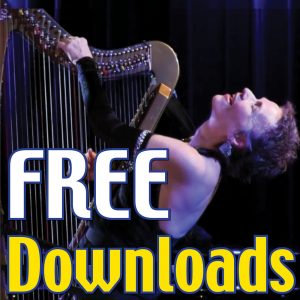

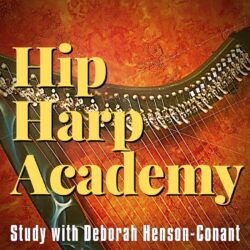

Join for Freebies, Stories & News
Join to get weekly-ish emails with stories, videos & events like concerts & classes
Yay! You should get my next newsletter within the next 7-10 days. I'm so happy we'll be in touch!
I won't ever share your email address with others - and you can unsubscribe anytime, tho most people say they really enjoy these weeklish emails.